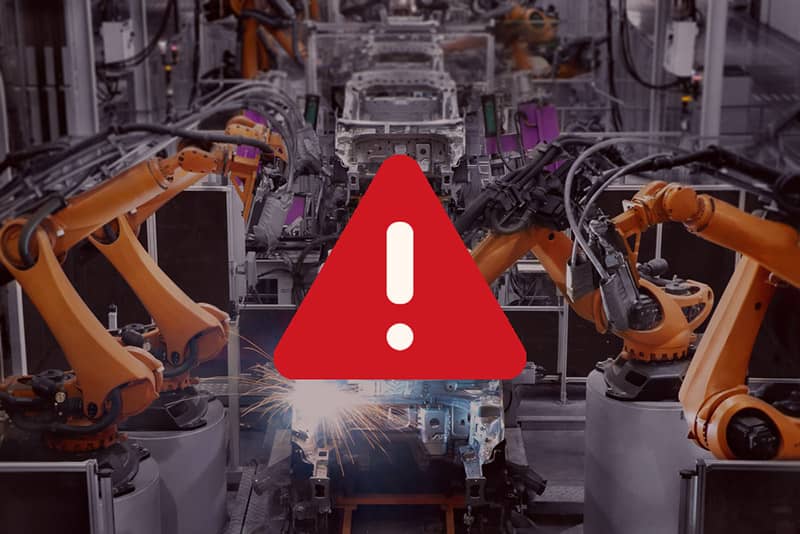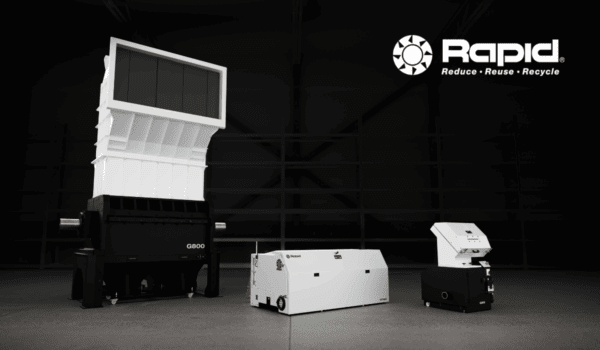
Lessons from Jaguar Land Rover: Why Manufacturers Must Prioritise Cyber Insurance
|
Getting your Trinity Audio player ready...
|
The recent cyber attack on Jaguar Land Rover (JLR) has highlighted just how vulnerable modern manufacturing operations are to digital disruption. JLR’s decision to shut down IT systems in response to the breach has left production lines across the UK, Slovakia, China, and India idle, with thousands of staff sent home and global suppliers cut off from critical systems.
For the UK plastics sector, the impact is even closer to home. Plastics manufacturers supply a wide range of components to automotive OEMs, with JLR being a major customer. When JLR’s factories stop, demand for plastic parts slows, orders are delayed, and the disruption quickly ripples through the supply chain.
This incident is a timely reminder that cyber threats are no longer confined to data breaches or email phishing. They now strike at the heart of production, creating operational downtime that can cost millions per day.
This blog explores what happened at JLR, why plastics companies face similar risks, and how cyber insurance for manufacturers provides vital protection when systems are compromised.
What Happened at Jaguar Land Rover?
On 31 August 2025, JLR suffered a cyber incident that forced the company to proactively shut down its IT infrastructure. While customer data does not appear to have been stolen, production and retail operations were severely disrupted.
Key impacts included:
- Production Halted – Around 1,000 vehicles per day were no longer being built across multiple factories.
- Staff Sent Home – Thousands of employees were unable to work while IT teams conducted a “complex, controlled recovery.”
- Supply Chain Disrupted – Suppliers lost access to ordering and logistics systems, triggering a domino effect across just-in-time supply chains.
- Retail Delays – Dealerships could not register or deliver vehicles, hitting revenue at a critical sales period.
Reports suggest the attack was linked to a ransomware group operating a “ransomware-as-a-service” model, making advanced cyber tools accessible to low-skill hackers.
For JLR, the immediate losses were measured in production downtime. For smaller businesses, such disruption could prove devastating.
The Financial Impact of Downtime
Research suggests every hour of lost production in the automotive sector can cost upwards of £1.6 million. While plastics manufacturers may operate on a smaller scale, the principle is the same—when systems stop, revenue stops.
Downtime can lead to:
- Lost output – halted production runs mean orders go unfulfilled.
- Delayed deliveries – supply chain partners are left waiting for parts or products.
- Contract risks – failure to meet deadlines could trigger financial penalties.
- Reputational damage – long-term relationships with customers may be jeopardised.
JLR has the resources to absorb weeks of disruption. Many plastics manufacturers do not. A cyber incident of this scale could threaten survival.
Why Plastics Manufacturers Are Exposed
The plastics industry is increasingly digitalised. From injection moulding and extrusion to compounding and recycling, production processes now rely heavily on software-driven control systems and interlinked supply chain platforms.
Whilst this has huge productive advantage, it creates multiple vulnerabilities:
- Production Disruption – attacks on operational technology can lock machines, corrupt recipes, or halt quality checks.
- Supply Chain Vulnerabilities – reliance on customer or supplier systems means a single breach elsewhere can affect your business.
- Intellectual Property Theft – proprietary formulations, mould designs, or material specifications may be stolen.
- Hacktivism – politically motivated groups have targeted plastics companies in the past, aiming to cause maximum disruption.
- Ransomware Attacks – hackers encrypt systems and demand payment to restore access, often leaving companies with no option but to shut down.
The JLR incident demonstrates that production stoppages are now a key target for cyber criminals. For plastics processors, who often run tight margins and strict delivery schedules, resilience is essential.
The Role of Cyber Insurance for Manufacturers
Cyber insurance is not a substitute for robust cyber security practices, but it is an essential layer of protection when defences are breached.
A tailored cyber insurance policy for plastics manufacturers typically covers:
- Business Interruption – compensation for lost income during downtime.
- Ransomware Response – negotiation and payment handling if ransom demands are made.
- Data Recovery – costs of restoring corrupted or encrypted files.
- Incident Investigation – IT forensics and system recovery support.
- Legal and Regulatory Costs – cover for legal action or fines resulting from breaches.
- Reputational Support – PR and crisis management to rebuild trust.
PlastikCity Insurance provides policies designed specifically for the plastics sector, backed by cyber risk analysis reports to help identify vulnerabilities before an attack occurs.
Building Resilience: Insurance and Best Practice
The lesson from JLR is clear: cyber resilience must be treated as seriously as physical safety or quality control. For plastics manufacturers, that means combining best practice with robust financial protection.
Key steps include:
- Regular Updates and Patches – keeping software current reduces vulnerabilities.
- Employee Training – staff are often the weakest link; phishing awareness is critical.
- Access Controls – restrict system access to those who need it.
- Incident Response Planning – test how your company would react to a breach.
- Offsite Backups – ensure critical data can be restored independently of compromised systems.
Cyber insurance supports these measures by covering the financial fallout if they fail.
Conclusion: The Warning Manufacturers Cannot Ignore
Jaguar Land Rover’s cyber attack shows how a single digital breach can halt production, ripple through supply chains, and damage customer trust. If it can happen to the UK’s largest carmaker, no plastics company can afford to assume immunity.
For plastics processors, the stakes are high. Cyber attacks no longer just target data—they target production itself. Without cover, the financial and operational consequences could be severe.
PlastikCity Insurance specialises in providing insurance for manufacturers and plastics companies, ensuring tailored protection for an industry where downtime is costly and resilience is essential.
Don’t wait until a cyber incident shuts down your production line. Protect your business today with a tailored cyber insurance policy.
Contact PlastikCity Insurance for a free cyber risk assessment and quote.
PlastikCity Insurance’s policies are arranged and administered by PHL Insurance Brokers Limited.
Read more about PlastikCity Insurance here.
PlastikCity Insurance
03330 2034 9990
Website
Email






